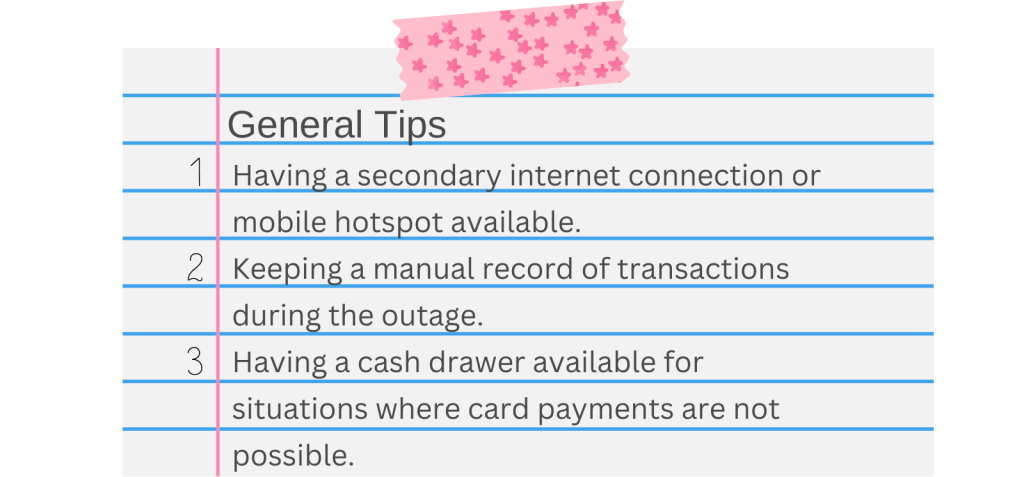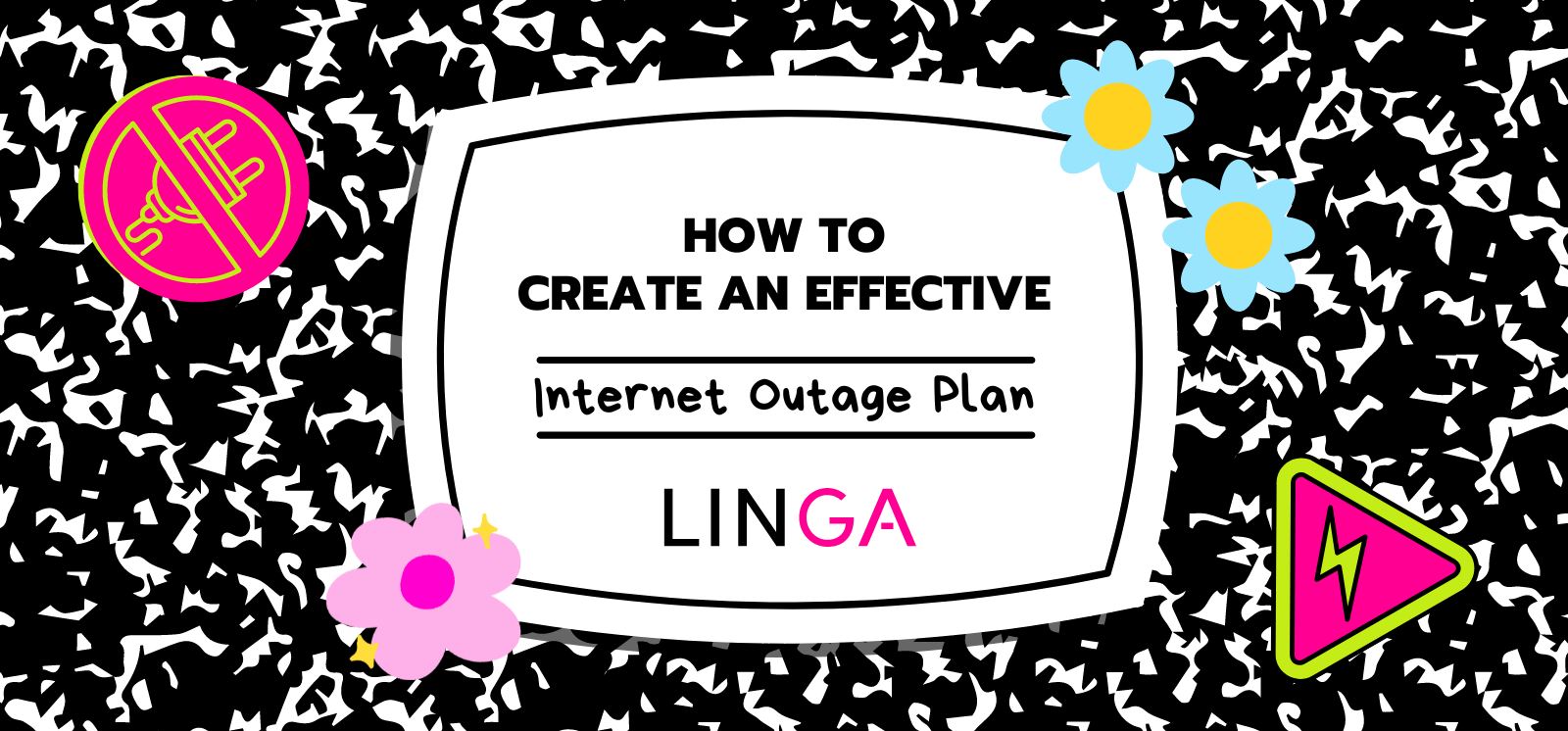


In the fast-paced world of restaurant and retail industries, even minor disruptions can significantly impact your business. From unpredictable weather events to unexpected power outages, it’s crucial to be prepared for any contingency that could disrupt your smooth operations. Don’t get caught scrambling when the internet cuts out; have a plan of action, and be ready for the impact of an outage at any time.
This blog post will guide you through creating a comprehensive outage plan specifically tailored to your restaurant or retail shop, ensuring you can bask in the knowledge that you’re ready to face any challenge head-on.
Planning for the Unexpected: Potential Outage Scenarios
Here are some common outage scenarios to consider when creating your plan:
- Power Outages: These can disrupt all aspects of your operation, from lighting and refrigeration to POS system functionality.
- Internet Outages: Inability to access the internet can affect online ordering systems, credit card processing, and communication with suppliers.
- Equipment Failure: Hardware malfunctions in kitchen appliances, POS systems, or other equipment can cause significant delays.
What type of POS do I have? And how does that impact my outage plan?
Understanding your specific POS system, whether it’s a cloud-based POS system, a mobile POS solution, or a traditional POS register, is vital for crafting an effective outage plan. Knowing its capabilities and limitations will guide your actions during critical situations.
Cloud-Based POS System
A cloud-based POS system stores data on remote servers accessed through the internet. Think of it like using online banking or social media – you can access your information from any device with an internet connection. This can be super helpful for managers who want to access the system after hours or owners who want to check up on things while on the go. The best part about the cloud-based POS system is its versatility across multiple platforms.
Most functionality might be unavailable during an internet outage, including processing transactions, accessing sales data, and printing receipts. However, some cloud-based systems, like LINGA, offer offline functionalities like storing transaction data locally and syncing it later when the internet connection is restored. This is one of the many benefits that a cloud-based solution offers over its counterparts.
Legacy POS System
A legacy POS system is a traditional system with software and data stored locally on servers or a hard drive at the physical location. This is similar to saving documents on your computer’s hard drive as it is only accessible on that specific device. Picture it as your dad’s toaster oven; it’s old and can only do certain minute functions, but at the end of the day, simple to use and it’s reliable.
If the outage only affects the internet, a legacy POS system can still function as usual for processing transactions and printing receipts. However, they may be unable to access real-time inventory data or update sales data during the internet outage.
General Tips
Regardless of the system, it’s crucial to have a backup plan in place for outages. This may include:



Building a Robust Outage Plan: Key Components
Now that we understand the different types of outages and their potential impact, let’s delve into the essential components you must incorporate into your outage plan.
1. Communication Strategy about Outage:
- Establish clear communication protocols for informing staff and customers about an outage. SMS messaging is one of the best ways to communicate this, but email is another good solution as well. Social media is the faster way to mass communicate if you are in a pinch. Consider having some social templates ready to quickly update your staff and customers when in a pinch.
- Designate a point person responsible for communicating updates and maintaining order. Whether it’s the restaurant manager or your go-to server, be sure it is someone trustworthy and calm under pressure.
2. Backup and Redundancy – Power Outage:
- Explore backup power solutions like generators or uninterruptible power supplies (UPS) to maintain essential operations during power outages. If you are in a hurricane or tornado state, this is a must-have part of your plan.
- Consider employing a cloud-based POS system with offline capabilities to ensure data integrity and continued service in case of internet disruptions. This way, you can still take payments and keep business flowing.
- Implement inventory management systems with contingency plans to manage stock levels in case of point-of-sale malfunction.
3. Alternative Payment Methods – Internet Outage:
- Have a backup plan for processing payments during POS system downtime. Explore options like manual credit card imprints, cash transactions, or mobile POS solutions like mobile wallets for limited functionality.
- Communicate accepted payment methods during power internet outages to manage customer expectations.
4. Contingency Procedures:
- Train your staff on alternative order-taking methods when the POS system is unavailable.
- Establish protocols for handling perishable food items and maintaining food safety standards during power outages. Think of this as your bi-annual fire alarm test. It may just be a boring drill you do every so often, but if and when the real thing happens, you and your team are ready to take action.
By implementing an internet outage plan and proactively addressing potential challenges, you can minimize the negative impact of disruptions and ensure your restaurant navigates unexpected situations with resilience. Having a well-prepared restaurant and peace of mind is truly something to revel in.
Learn more about LINGA and its cloud-based capabilities to soothe your business through any potential outage.
